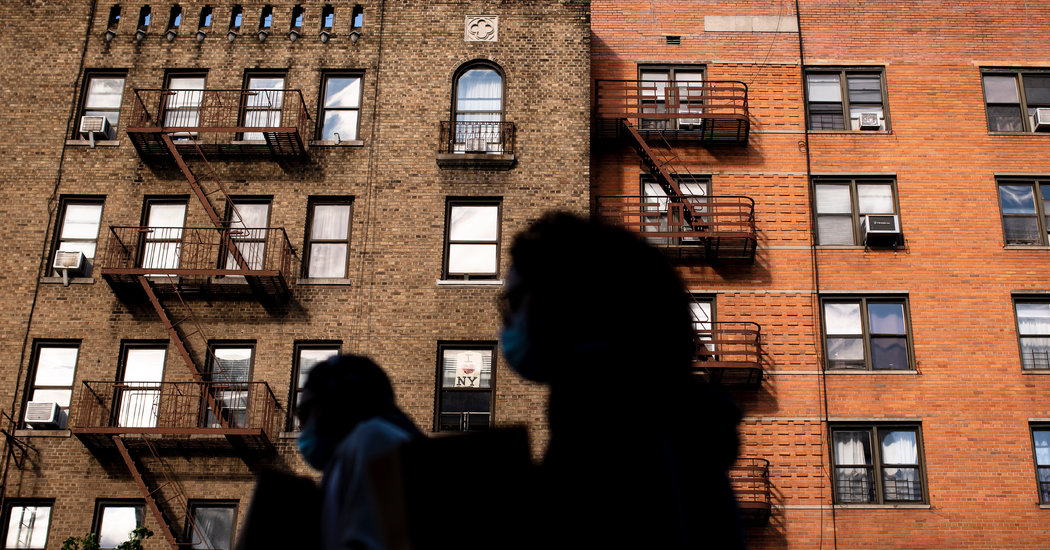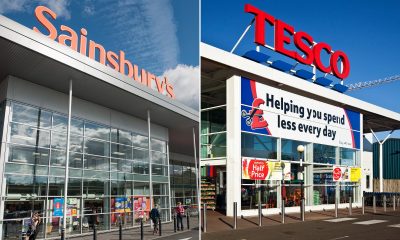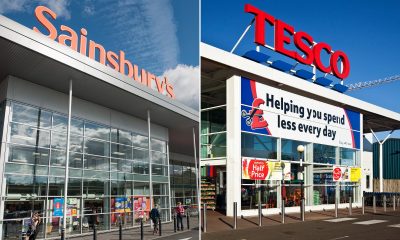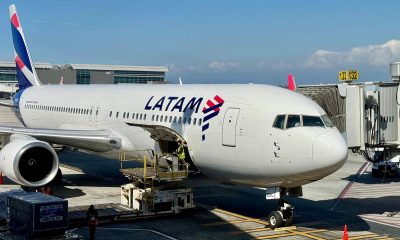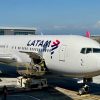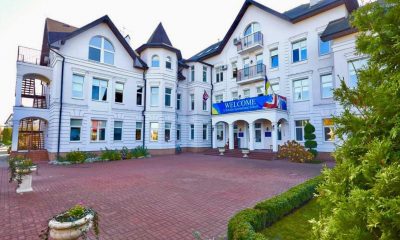ECONOMIC NEWS
N.Y.C., Facing Pandemic Fallout, Freezes Rent for 2 Million Tenants for a Year
The New York City panel that sets rents for the roughly 2.3 million residents of rent-regulated apartments on Wednesday froze those rents for a year, delivering a slight reprieve to tenants struggling in the worst economy in decades.By a 6-to-3 vote, the panel, the Rent Guidelines Board, approved a measure that froze rents on one-year leases at their current levels and imposed a similar freeze in the first year of two-year leases, while allowing landlords to raise rents 1 percent in the second year.The vote came after dueling proposals offered by the board’s tenant and landlord members failed. The tenant proposal would have frozen rents for two years, while the landlord members sought to raise rents 2 percent on one-year leases and 5 percent on two-year leases.The board’s annual vote typically caps weeks of hostility and fierce tensions between landlords and tenants. But this year, with the coronavirus pandemic triggering an economic collapse and nationwide protests over racial inequality and injustice, the acrimony reached a fever pitch.Some tenant groups had called for a rent decrease, which the board has never approved in its more than 50-year history. Tenants, particularly black and Latino city residents who have been especially hard hit by job losses, cannot afford their current rent and could face homelessness without some relief, renters’ advocates said.An eviction moratorium imposed by the state for those affected by the pandemic and economic shutdown expires in August.“Our clients and all low-income tenants across the city are already at a breaking point, and we must provide meaningful relief in order to avoid a wave of evictions,” Adriene Holder, a lawyer at the Legal Aid Society and a former member of the rent board, said in a statement on Wednesday.Landlords had urged the board to acknowledge their financial straits, including years of rising expenses and, more recently, the nonpayment of rent by tenants and organized rent strikes.In the end, the board ratified an initial vote it had taken in May.The changes affect leases renewed after Oct. 1 for the nearly one million rent-stabilized units, about half of the city’s rental stock. They do not affect market-based rentals. Rent-stabilized apartments are typically in buildings built before 1974 with at least six units, as well as buildings constructed or renovated since then with special tax benefits.The rent freeze approved on Wednesday is the third under Mayor Bill de Blasio, a Democrat who appoints all of the board’s members. (Last year, the members approved a 1.5 percent increase for one-year leases and 2.5 percent on two-year leases.)After the vote, landlords criticized Mr. de Blasio for playing “pandemic politics” and not taking their own precarious situatiWASHINGTON — The new federal oversight board responsible for tracking how $2.4 trillion in bailout money is being spent warned on Wednesday that a lack of transparency and feeble reporting requirements could hamper its efforts to ensure that the funds are being deployed properly.In its inaugural report, the Pandemic Response Accountability Committee, a panel of inspectors general, laid out an array of obstacles facing the country’s largest-ever economic relief effort. The concerns come as the White House has taken steps to curb the power of inspectors general throughout the federal government and as Treasury refuses to disclose where small business loan money is going.“Key areas of concern include both the need for accurate information concerning pandemic-related spending and the significant amount of money federal agencies may lose as the result of improper payments,” the report said.The 88-page document examined the challenges facing the entire federal government as it manages its response to the coronavirus pandemic. Two notable concerns focused on the Treasury Department and the Small Business Administration, which are overseeing more than $1 trillion in bailout money that is being used to support small businesses, backstop Federal Reserve emergency lending facilities, support the airline industry and assist local governments.One of those programs, a $150 billion fund to help state and local governments, has been flagged by Treasury’s inspector general for a “lack of accountability and transparency.” Recipients of coronavirus relief funds have gotten money “without agreements or terms and conditions establishing requirements for the use of funds and reporting on such uses, among other things,” the report said.The committee said Treasury had agreed to work with its inspector general to develop guidance that would ensure fund applicants and recipients were complying with the law and that records were available for audit work.Another program, one aimed at keeping small businesses afloat through forgivable loans, also came under criticism for how it had been designed and overseen by the Small Business Administration and Treasury.The committee warned that the government could face financial losses on the $660 billion Paycheck Protection Program, which has been designed to avoid making banks and other lenders assume any risk for the loans they extend. That could allow money to go to borrowers who did not qualify for the program and result in unpaid loans.The scale of the program and the speed at which the agency is working to process loans has also opened the door to potential fraud, the report warned.“Increased loan volume, loan amounts and expedited loan processing time frames may make it more difficult for S.B.A. to identify red flags in loan applications,” the report said.The review comes amid a growing fight among the committee, lawmakers and the Treasury Department over how much information the Trump administration should be required to disclose about those receiving bailout funds.
Updated June 16, 2020
I’ve heard about a treatment called dexamethasone. Does it work?
The steroid, dexamethasone, is the first treatment shown to reduce mortality in severely ill patients, according to scientists in Britain. The drug appears to reduce inflammation caused by the immune system, protecting the tissues. In the study, dexamethasone reduced deaths of patients on ventilators by one-third, and deaths of patients on oxygen by one-fifth.
What is pandemic paid leave?
The coronavirus emergency relief package gives many American workers paid leave if they need to take time off because of the virus. It gives qualified workers two weeks of paid sick leave if they are ill, quarantined or seeking diagnosis or preventive care for coronavirus, or if they are caring for sick family members. It gives 12 weeks of paid leave to people caring for children whose schools are closed or whose child care provider is unavailable because of the coronavirus. It is the first time the United States has had widespread federally mandated paid leave, and includes people who don’t typically get such benefits, like part-time and gig economy workers. But the measure excludes at least half of private-sector workers, including those at the country’s largest employers, and gives small employers significant leeway to deny leave.
Does asymptomatic transmission of Covid-19 happen?
So far, the evidence seems to show it does. A widely cited paper published in April suggests that people are most infectious about two days before the onset of coronavirus symptoms and estimated that 44 percent of new infections were a result of transmission from people who were not yet showing symptoms. Recently, a top expert at the World Health Organization stated that transmission of the coronavirus by people who did not have symptoms was “very rare,” but she later walked back that statement.
What’s the risk of catching coronavirus from a surface?
Touching contaminated objects and then infecting ourselves with the germs is not typically how the virus spreads. But it can happen. A number of studies of flu, rhinovirus, coronavirus and other microbes have shown that respiratory illnesses, including the new coronavirus, can spread by touching contaminated surfaces, particularly in places like day care centers, offices and hospitals. But a long chain of events has to happen for the disease to spread that way. The best way to protect yourself from coronavirus — whether it’s surface transmission or close human contact — is still social distancing, washing your hands, not touching your face and wearing masks.
How does blood type influence coronavirus?
A study by European scientists is the first to document a strong statistical link between genetic variations and Covid-19, the illness caused by the coronavirus. Having Type A blood was linked to a 50 percent increase in the likelihood that a patient would need to get oxygen or to go on a ventilator, according to the new study.
How many people have lost their jobs due to coronavirus in the U.S.?
The unemployment rate fell to 13.3 percent in May, the Labor Department said on June 5, an unexpected improvement in the nation’s job market as hiring rebounded faster than economists expected. Economists had forecast the unemployment rate to increase to as much as 20 percent, after it hit 14.7 percent in April, which was the highest since the government began keeping official statistics after World War II. But the unemployment rate dipped instead, with employers adding 2.5 million jobs, after more than 20 million jobs were lost in April.
Will protests set off a second viral wave of coronavirus?
Mass protests against police brutality that have brought thousands of people onto the streets in cities across America are raising the specter of new coronavirus outbreaks, prompting political leaders, physicians and public health experts to warn that the crowds could cause a surge in cases. While many political leaders affirmed the right of protesters to express themselves, they urged the demonstrators to wear face masks and maintain social distancing, both to protect themselves and to prevent further community spread of the virus. Some infectious disease experts were reassured by the fact that the protests were held outdoors, saying the open air settings could mitigate the risk of transmission.
My state is reopening. Is it safe to go out?
States are reopening bit by bit. This means that more public spaces are available for use and more and more businesses are being allowed to open again. The federal government is largely leaving the decision up to states, and some state leaders are leaving the decision up to local authorities. Even if you aren’t being told to stay at home, it’s still a good idea to limit trips outside and your interaction with other people.
What are the symptoms of coronavirus?
Common symptoms include fever, a dry cough, fatigue and difficulty breathing or shortness of breath. Some of these symptoms overlap with those of the flu, making detection difficult, but runny noses and stuffy sinuses are less common. The C.D.C. has also added chills, muscle pain, sore throat, headache and a new loss of the sense of taste or smell as symptoms to look out for. Most people fall ill five to seven days after exposure, but symptoms may appear in as few as two days or as many as 14 days.
How can I protect myself while flying?
If air travel is unavoidable, there are some steps you can take to protect yourself. Most important: Wash your hands often, and stop touching your face. If possible, choose a window seat. A study from Emory University found that during flu season, the safest place to sit on a plane is by a window, as people sitting in window seats had less contact with potentially sick people. Disinfect hard surfaces. When you get to your seat and your hands are clean, use disinfecting wipes to clean the hard surfaces at your seat like the head and arm rest, the seatbelt buckle, the remote, screen, seat back pocket and the tray table. If the seat is hard and nonporous or leather or pleather, you can wipe that down, too. (Using wipes on upholstered seats could lead to a wet seat and spreading of germs rather than killing them.)
Should I wear a mask?
The C.D.C. has recommended that all Americans wear cloth masks if they go out in public. This is a shift in federal guidance reflecting new concerns that the coronavirus is being spread by infected people who have no symptoms. Until now, the C.D.C., like the W.H.O., has advised that ordinary people don’t need to wear masks unless they are sick and coughing. Part of the reason was to preserve medical-grade masks for health care workers who desperately need them at a time when they are in continuously short supply. Masks don’t replace hand washing and social distancing.
What should I do if I feel sick?
If you’ve been exposed to the coronavirus or think you have, and have a fever or symptoms like a cough or difficulty breathing, call a doctor. They should give you advice on whether you should be tested, how to get tested, and how to seek medical treatment without potentially infecting or exposing others.
The acting chair of the committee, Michael E. Horowitz, complained to Congress last week that the Treasury Department was not demonstrating sufficient transparency and that its lawyers had issued an opinion that would further curtail oversight of more than $1 trillion in aid.Democrats and Republicans in Congress have been pressing Treasury Secretary Steven Mnuchin to be more forthcoming about the whereabouts of the bailout money, particularly information about which companies have received small business loans. While some publicly traded companies have voluntarily disclosed receiving loans, private businesses are not required to release that information, and the Treasury Department has refused to provide a list of which companies received money.Mr. Mnuchin told a Senate committee last week that the information was “proprietary.” Facing growing pressure, he appeared to reverse course on Monday, indicating that he would work with lawmakers to find a solution on disclosure.Senator Marco Rubio of Florida, the Republican chairman of the Small Business Committee, said on Wednesday that he supported “full disclosure” but that Treasury and the S.B.A. were looking out for the concerns of small businesses regarding access to their financial information. Mr. Rubio, who has been holding talks with Mr. Mnuchin on the matter, said he was trying to find a way to disclose that addressed those concerns.
on into consideration.The mayor was “denying owners of small buildings, mostly immigrants and people of color, the rent revenue needed to operate their buildings, finance capital improvements, infuse jobs and revenue into their neighborhoods, and pay property taxes that he raises every year,” said Joseph Strasburg, the president of the Rent Stabilization Association, which represents some 25,000 landlords of rent-stabilized units.Mr. de Blasio, who himself is a landlord, hailed the board’s action in a statement issued after the vote.“Renters have never faced hardship like this,” he said. “They desperately need relief, and that’s why we fought for this rent freeze.”The Rent Stabilization Association and other landlord groups have said that if tenants received a rent freeze, the city should enact a similar freeze for owners on property taxes and utilities.The annual rent ritual, in which a city board with a bureaucratic name meets to decide the coming year’s housing costs for millions of New Yorkers, has long been a flash point that puts the grievances of tenants and landlords on full display.The groups’ competing interests have clashed for decades, and they fought especially hard in recent times as housing costs, and landlords’ expenses, skyrocketed. The median monthly rent citywide on rent-regulated apartments was $1,260 in 2018, up from $910 in 2010. In Manhattan, it was $1,913.But the meeting Wednesday night came amid an acute crisis that has thrust the issue of affordable housing to the forefront of daily conversations about inequality and economic survival.
Updated June 16, 2020
I’ve heard about a treatment called dexamethasone. Does it work?
The steroid, dexamethasone, is the first treatment shown to reduce mortality in severely ill patients, according to scientists in Britain. The drug appears to reduce inflammation caused by the immune system, protecting the tissues. In the study, dexamethasone reduced deaths of patients on ventilators by one-third, and deaths of patients on oxygen by one-fifth.
What is pandemic paid leave?
The coronavirus emergency relief package gives many American workers paid leave if they need to take time off because of the virus. It gives qualified workers two weeks of paid sick leave if they are ill, quarantined or seeking diagnosis or preventive care for coronavirus, or if they are caring for sick family members. It gives 12 weeks of paid leave to people caring for children whose schools are closed or whose child care provider is unavailable because of the coronavirus. It is the first time the United States has had widespread federally mandated paid leave, and includes people who don’t typically get such benefits, like part-time and gig economy workers. But the measure excludes at least half of private-sector workers, including those at the country’s largest employers, and gives small employers significant leeway to deny leave.
Does asymptomatic transmission of Covid-19 happen?
So far, the evidence seems to show it does. A widely cited paper published in April suggests that people are most infectious about two days before the onset of coronavirus symptoms and estimated that 44 percent of new infections were a result of transmission from people who were not yet showing symptoms. Recently, a top expert at the World Health Organization stated that transmission of the coronavirus by people who did not have symptoms was “very rare,” but she later walked back that statement.
What’s the risk of catching coronavirus from a surface?
Touching contaminated objects and then infecting ourselves with the germs is not typically how the virus spreads. But it can happen. A number of studies of flu, rhinovirus, coronavirus and other microbes have shown that respiratory illnesses, including the new coronavirus, can spread by touching contaminated surfaces, particularly in places like day care centers, offices and hospitals. But a long chain of events has to happen for the disease to spread that way. The best way to protect yourself from coronavirus — whether it’s surface transmission or close human contact — is still social distancing, washing your hands, not touching your face and wearing masks.
How does blood type influence coronavirus?
A study by European scientists is the first to document a strong statistical link between genetic variations and Covid-19, the illness caused by the coronavirus. Having Type A blood was linked to a 50 percent increase in the likelihood that a patient would need to get oxygen or to go on a ventilator, according to the new study.
How many people have lost their jobs due to coronavirus in the U.S.?
The unemployment rate fell to 13.3 percent in May, the Labor Department said on June 5, an unexpected improvement in the nation’s job market as hiring rebounded faster than economists expected. Economists had forecast the unemployment rate to increase to as much as 20 percent, after it hit 14.7 percent in April, which was the highest since the government began keeping official statistics after World War II. But the unemployment rate dipped instead, with employers adding 2.5 million jobs, after more than 20 million jobs were lost in April.
Will protests set off a second viral wave of coronavirus?
Mass protests against police brutality that have brought thousands of people onto the streets in cities across America are raising the specter of new coronavirus outbreaks, prompting political leaders, physicians and public health experts to warn that the crowds could cause a surge in cases. While many political leaders affirmed the right of protesters to express themselves, they urged the demonstrators to wear face masks and maintain social distancing, both to protect themselves and to prevent further community spread of the virus. Some infectious disease experts were reassured by the fact that the protests were held outdoors, saying the open air settings could mitigate the risk of transmission.
My state is reopening. Is it safe to go out?
States are reopening bit by bit. This means that more public spaces are available for use and more and more businesses are being allowed to open again. The federal government is largely leaving the decision up to states, and some state leaders are leaving the decision up to local authorities. Even if you aren’t being told to stay at home, it’s still a good idea to limit trips outside and your interaction with other people.
What are the symptoms of coronavirus?
Common symptoms include fever, a dry cough, fatigue and difficulty breathing or shortness of breath. Some of these symptoms overlap with those of the flu, making detection difficult, but runny noses and stuffy sinuses are less common. The C.D.C. has also added chills, muscle pain, sore throat, headache and a new loss of the sense of taste or smell as symptoms to look out for. Most people fall ill five to seven days after exposure, but symptoms may appear in as few as two days or as many as 14 days.
How can I protect myself while flying?
If air travel is unavoidable, there are some steps you can take to protect yourself. Most important: Wash your hands often, and stop touching your face. If possible, choose a window seat. A study from Emory University found that during flu season, the safest place to sit on a plane is by a window, as people sitting in window seats had less contact with potentially sick people. Disinfect hard surfaces. When you get to your seat and your hands are clean, use disinfecting wipes to clean the hard surfaces at your seat like the head and arm rest, the seatbelt buckle, the remote, screen, seat back pocket and the tray table. If the seat is hard and nonporous or leather or pleather, you can wipe that down, too. (Using wipes on upholstered seats could lead to a wet seat and spreading of germs rather than killing them.)
Should I wear a mask?
The C.D.C. has recommended that all Americans wear cloth masks if they go out in public. This is a shift in federal guidance reflecting new concerns that the coronavirus is being spread by infected people who have no symptoms. Until now, the C.D.C., like the W.H.O., has advised that ordinary people don’t need to wear masks unless they are sick and coughing. Part of the reason was to preserve medical-grade masks for health care workers who desperately need them at a time when they are in continuously short supply. Masks don’t replace hand washing and social distancing.
What should I do if I feel sick?
If you’ve been exposed to the coronavirus or think you have, and have a fever or symptoms like a cough or difficulty breathing, call a doctor. They should give you advice on whether you should be tested, how to get tested, and how to seek medical treatment without potentially infecting or exposing others.
The pandemic has put millions of New Yorkers out of work, making rent payments nearly impossible for many at a time when the city already did not have enough affordable units to meet demand.And the protests over racial injustice have expanded far beyond issues of police brutality, placing a glaring spotlight on the many disparities — including housing — that black people face. About two-thirds of tenants in rent-stabilized units in New York City are people of color.Leah Goodridge, one of the board’s tenant members, cited the protests in offering the proposal for the two-year freeze.She said it made her concerned “to see people be silent about the pain that caused the protests we’re seeing across the world but very vocal about property damage on account of the protests.” She drew a comparison between discussions of “the pain of landlords losing money” versus “tenants facing death and a poverty abyss from the coronavirus.”The debate over whether and how to help New Yorkers pay their rent has been a constant topic of conversation over the course of the pandemic. Roughly 25 percent of rent-stabilized tenants have not paid rent in April, May and June, according to the Community Housing Improvement Program, or CHIP, a trade group for 4,000 building owners and managers.Community nonprofits and progressives across the country have rallied around a broad #CancelRent campaign, which seeks to persuade the government to halt rent and mortgage payments — without back payments accruing — for as long as the pandemic continues to batter the economy.Several landlords’ organizations have proposed shorter rent freezes with higher increases in future years that they say would be necessary for landlords to keep up with operating expenses.Freezing rent, they have argued, would only expedite the deterioration of the city’s aging housing stock because landlords would not have enough income to make improvements.Ed Shanahan contributed reporting.
Source link



